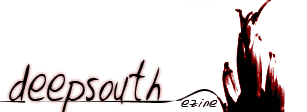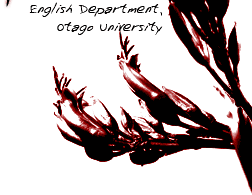Deep in the South, something was sleeping
And then, after three long years of hibernation, it woke up.
It brought with it, when it awoke, a lot of unusual things. It brought a fan-tailed bird fluttering through an open window, a body lying underneath a blanket on the footpath. It brought a smell of lazy warmth and wet earth, as well as a dead fish in a plastic bucket. It brought a strange dark cabin in a wild place, and another room the contours of which refused to stay constant. If you listened to it very carefully, you could hear the notes of a piano traveling through a distant sea; other sounds waited, like live ammunition, inside the bodies of musical instruments.
A young seal slipped into the water.
In this issue of Deep South we are proud to present the work of twenty-seven poets and three short fiction writers. Their poems and stories differ in style and content; some of them are relatively straightforward, others are not. They all, however, have one thing in common; each, in its own way, offers an access to a different way of thinking, a different way of perceiving, a different space. Some of these spaces may be relatively familiar, others may take a little getting used to. In some of them you'll be able to walk around as in a landscape; a few may be harder to get inside and you might, at first, have to settle for a more detached examination, taking in the angles and structures of the work as you would those of a sculpture or piece of architecture. Once this initial contact is made, however, the text will reach out and accomplish the rest. You'll start finding yourself in places you never anticipated, being people you never planned to be. You'll wake to find a green cloud squatting on your chest, see a dead cat sprawled in brambles, a girl with her dress on fire like a flower. You'll walk through the spaces of the words.
You'll find there's plenty of room.
Cy Elza Mathews

